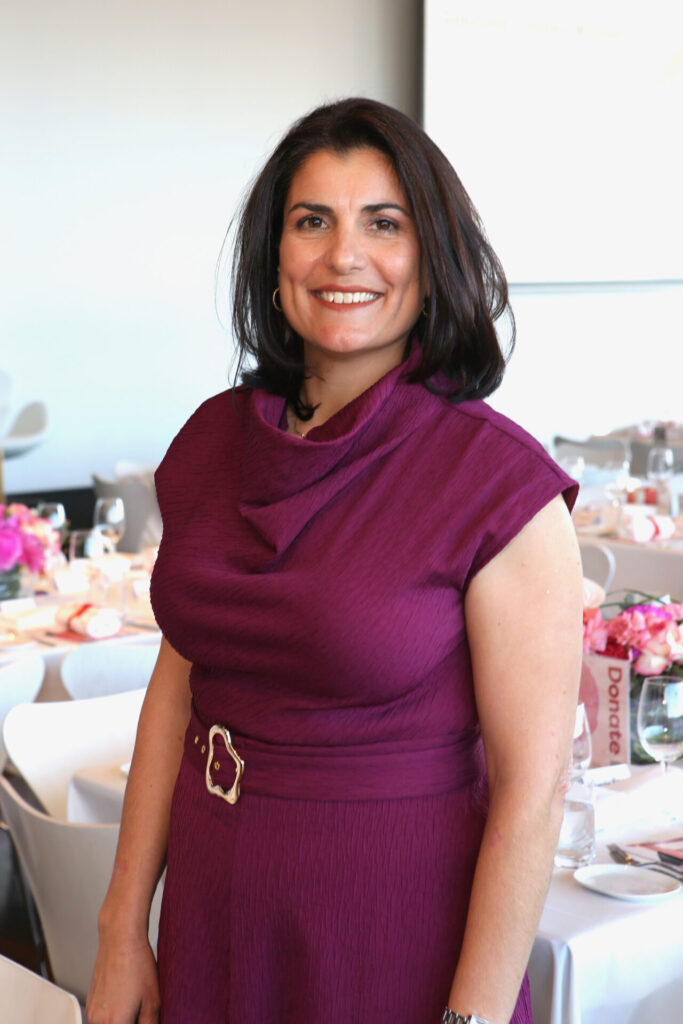Responsive philanthropy: How Sydney Women’s Fund launched a quickfire domestic violence campaign

The Sydney Women’s Fund (SWF) has launched a campaign that took just over a week to create in response to the series of horrific violent incidents against women dominating news cycles that the government has called a national crisis. The Fund’s ongoing work with frontline services operating in the domestic and sexual violence space was instrumental in building the rapid campaign more commonly associated with large not-for-profits dealing in disaster response.

The SWF is a sub-fund of the Sydney Community Foundation. CEO Loredana Fyffe says that the SWF’s Advisory Council, chaired by Georgina Byron AM, met on 29 April initially to discuss putting out a statement to media to say that immediate action was needed for funds to reach frontline services.
“But we actually decided that the best way to make immediate change and help those services that we know are really struggling was to rally match funding and build this campaign. So that’s what we did and launched it just over a week later on 8 May,” says Loredana.
“The phone was ringing a lot with what’s in the media, so council members wanted to move with this and went to our donors who responded straight away. The frontline services we work with are experiencing an uptick in demand as people become more aware of what might be happening in their own life, based on what they are seeing in in the news.
“We can be so responsive because we’re regularly fundraising for these issues. Plus, we’re a small, nimble team, very experienced in the different aspects of a campaign, and we don’t need a lot of management approvals like other larger charities,” says Loredana, who puts her hands-on skills as a former graphic designer and marketer to use on inhouse campaigns when needed.
The Urgent Domestic and Sexual Violence Appeal will see every dollar raised by the public, up to $150,000, doubled by several of SWF’s generous major donors up to 30 June. “We know that women and families need our support without delay, yet effective local programs face ongoing challenges to access the funds needed just to keep their doors open,” Loredana says.
The organisations in line to receive the $300,000 if the appeal hits its target protect local women and families escaping violence, and help create pathways to housing, education and employment. SWF has DGR1 status so PAFs can contribute too, she says. “The strong relationships that we have with the grassroots organisations we work with was pivotal. I could pick up the phone to get quotes and expressions of support, so we were able to turn it around quickly and get the giving going.

“The ones we’ve talked to about getting some additional funding now are overjoyed at the prospect. Fundraising for small organisations takes them away from the frontline, so that’s where we can help.”
Significantly more women have died violently so far this year than last and the events have led to scores of public rallies, and the Minister for Women Katy Gallagher and Federal Government acknowledging it as a crisis before holding a snap cabinet meeting in late April.
Loredana says that Federal Government commitments to the Leaving Violence Program (LVP) and the move to reduce Australian’s exposure to content online that propels misogyny and disrespect are positive advancements, as is the NSW Government’s plan to commit $230m in a number of critical areas, but more is urgently required. Applications for the LVP won’t open until mid-2025.
“Unfortunately, a lot of the grassroots organisations doing great work don’t get government funding. They need help now to keep their doors open. After 20 years working in this space, we know exactly who needs the money. Our sphere of influence is strong and we’re trusted on our work across gender issues,” says Loredana.
The money will be going to a range of interventions already identified, including youth education for boys, legal support and practical measures like shelter and security upgrades. Siobhan Bryson, CEO of Weave Youth & Community Services, one of the organisations supported by SWF, says: “Our work with women who have experienced, or are experiencing, domestic and family violence is in urgent need of funding for safety audits and security upgrades – the cost of new locks, surveillance cameras, and security doors – to ensure women and their children can remain safely in their home while leaving a violent relationship.”
Loredana says: “The sector and services are doing the right things. The national plan is regarded as good by our grassroots partners, and we applaud the government initiatives, but there’s not enough money against it and its not getting out there fast enough.”
She says the recent developments are a result of a range of issues. “People are struggling with the cost of living and we’re seeing that play out in the uptick of demand on services as pressures mount on families. Then there are all the wider issues that need to be addressed. If there was more affordable housing, people could escape to safety more easily.
“We hope the campaign is a catalyst for people to look at the solutions and for philanthropists to fund them,” says Loredana.
“So many of us want to do more, right now, and this is one way people can contribute to ending men’s violence and supporting victim survivors.”